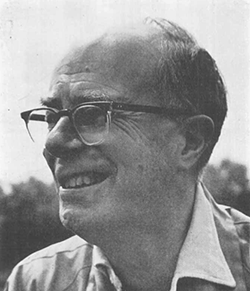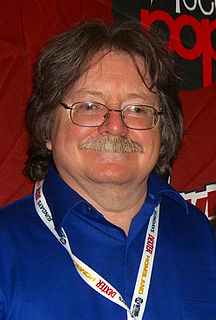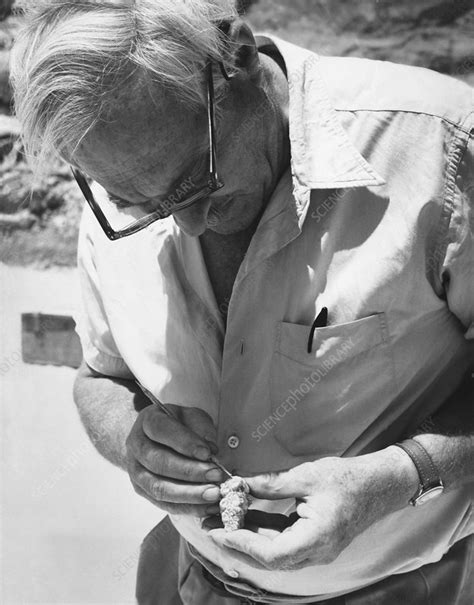A Quote by Stephen Jay Gould
Transitional forms are generally lacking at the species level, but they are abundant between larger groups.
Related Quotes
Since we proposed punctuated equilibria to explain trends, it is infuriating to be quoted again and again by creationists-whether through design or stupidity, I do not know-as admitting that the fossil record includes no transitional forms. Transitional forms are generally lacking at the species level, but they are abundant between larger groups.
The several difficulties here discussed, namely our not finding in the successive formations infinitely numerous transitional links between the many species which now exist or have existed; the sudden manner in which whole groups of species appear in our European formations; the almost entire absence, as at present known, of fossiliferous formations beneath the Silurian strata, are all undoubtedly of the gravest nature.
There are transitional forms between the metals and non-metals; between chemical combinations and simple mixtures, between animals and plants, between phanerogams and cryptogams, and between mammals and birds [...]. The improbability may henceforth be taken for granted of finding in Nature a sharp cleavage between all that is masculine on the one side and all that is feminine on the other; or that any living being is so simple in this respect that it can be put wholly on one side, or wholly on the other, of the line.
The fundamental problem in the origin of species is not the origin of differences in appearance, since these arise at the level of the geographical race, but the origin of genetic segregation. The test of species-formation is whether, when two forms meet, they interbreed and merge, or whether they keep distinct.
Anytime that is ‘betwixt and between’ or transitional is the faeries’ favorite time. They inhabit transitional spaces: the bottom of the garden, existing in a space between manmade cultivation and wilderness. Look for them in the space between nurture and nature, they are to be found at all boarders and boundaries, or on the edges of water where it is neither land nor lake, neither path nor pond. They come when we are half-asleep. They come at moments when we least expect them; when our rational mind balances with the fluid irrational.
Two forms or species are sympatric, if they occur together, that is if their areas of distribution overlap or coincide. Two forms (or species) are allapatric, if they do not occur together, that is if they exclude each other geographically. The term allopatric is primarily useful in denoting geographic representatives.
We ourselves are part of a guild of species that lie within and without our bodies. Aboriginal peoples and the Ayurvedic practitioners of ancient India have names for such guilds, or beings made up (as we are) of two or more species forming one organism. Most of nature is composed of groups of species working interdependently.
I think when you work on fossils, and you realize that a species is there, and it's abundant for quite a long period of time, and then at some point it's no longer there - and so, when you look at that bigger picture, yes, you realize that either you change and adapt, or, as a species, you go extinct.
































